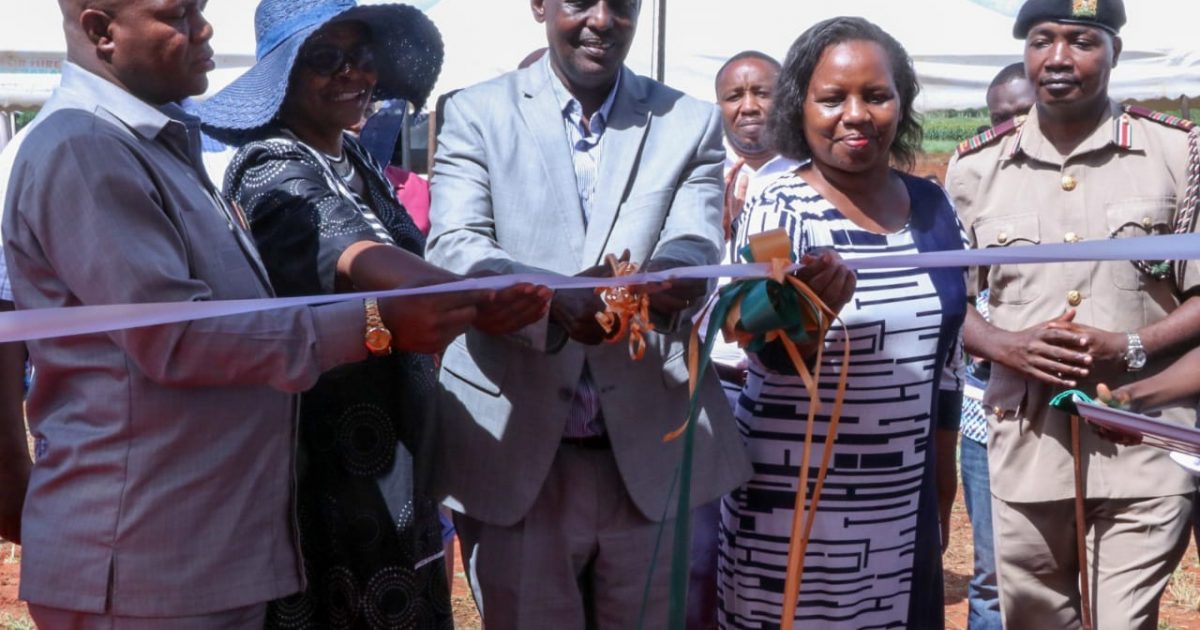The government through the Ministry of Agriculture and Livestock Development is implementing development initiatives that will contribute to the country’s food and nutrition security geared towards achieving the United Nations Sustainable Development Goals (SDGs), Principal Secretary (PS) for State Department of Agriculture Dr. Kipronoh Rono has said.
Consequently, Dr. Rono said that the State Department is implementing various programs, projects and activities at both national and county levels to end hunger and ensure food security and promote sustainable agriculture.
He particularly singled out the milestone achieved by the Kenya Agricultural Livestock Research Organization (KALRO) by introducing new dry land crops and pasture varieties through the use of the Climate-Smart technologies that will enhance sustainable agriculture.
The new crops and pasture that have been introduced are sorghum, cowpeas, grain amaranth and green grams following extensive research and farmer trials that have shown that they do well in Arid and Semi-Arid Lands (ASALs).
“The climate smart technologies developed by KALRO under the AgriFi project marks a critical milestone in our journey towards a sustainable future. By introducing new dry land crops and pasture varieties, we will improve productivity and resilience of our agricultural sector even in the face of severe moisture deficits,” said Rono in a speech read on his behalf by Badu Katelo Deputy Secretary Administration, State Department of Agriculture at KALRO in Kiboko, Makindu Subcounty.
Rono also lauded the European Union for the support they have offered to KALRO especially in funding and other development partners who have contributed towards achieving the research.
He challenged farmers to invest in climate-smart crops and grass varieties so that they can improve production besides earning an income.
Dr. Rono said that climate-smart crops and pasture varieties will contribute to the government’s effort in delivering Bottom-up Economic Transformation Agenda in food security and combat poverty afflicting many in the country.
KALRO Director General Dr. Eliud Kiplimo Kireger said that his organization through climate-smart technologies is targeting 500,000 smallholder farmers and pastoralists in developing resistant crops, to enhance technology adoption and foster linkages.
He revealed that KALRO’s dryland research program has been instrumental in developing numerous crop varieties suited for ASALs to overcome some of the challenges in the respective areas.
“The AgriFI Kenya Climate Smart Agricultural Project, co-funded by the EU and the Kenyan Government, aims to support KALRO’s research on climate-smart agricultural technologies to address climate challenges head-on,” said Dr. Kireger in a speech read on his behalf by KALRO Deputy Director General Dr. Felister Makini.
Further the Director General said they are endeavouring to advance agriculture research and develop technologies and innovations that will help counter the effects and challenges of climate change which has become a global phenomenon.
“The development of climate smart agriculture (CSA) technologies has emerged as a solution, aligning climate resilience with food security,” he said.
Speaking at the same event, Makueni County Deputy Governor Lucy Mulili urged farmers to take advantage and plant the crops and do commercial agriculture in order to earn a living and alleviate poverty.
Machakos County Deputy Governor Francis Mwangangi called for concerted efforts between the national and county governments to educate wananchi on the need to adopt the new technologies that will boost food security in the country.
Present at the function included Makindu Sub County Deputy County Commissioner (DCC) Mr. Moses Gicharu who represented the county commissioner at the event among other national and county government officials, development partners and EU delegation.
By Patrick Nyakundi





